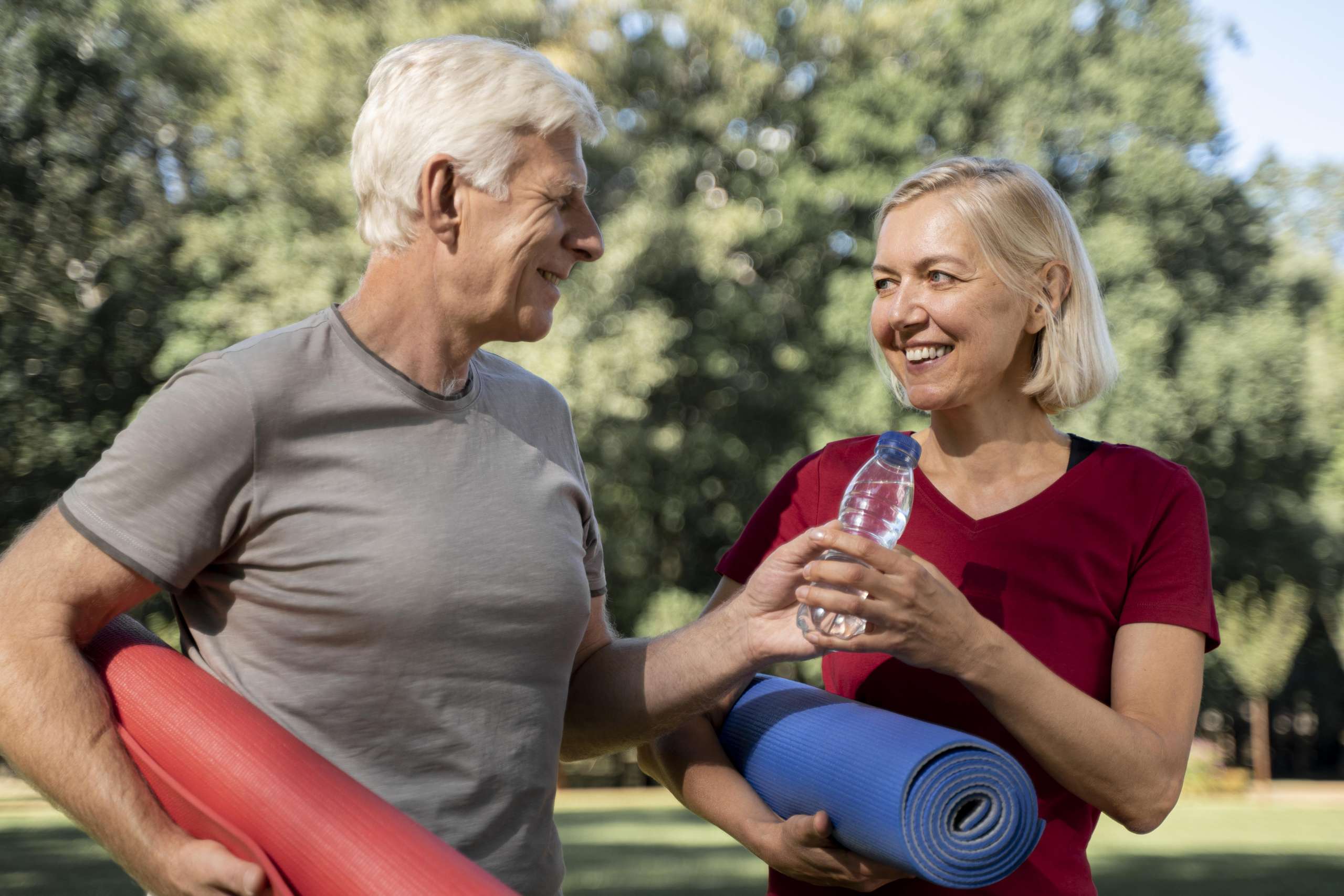
Regular activity of seniors has a positive impact on their well-being, significantly reduces the risk of certain diseases and improves the overall condition of the body. Therefore, it is worth encouraging seniors to be physically active on a daily basis. How to do it?
There is a belief that physical activity is connected with intensive effort for which one should have appropriate competences, sports equipment, experience and fitness. This is a misconception. Sport is not only titanic work and exhausting workouts. Exercising your muscles and activating your body can be a very enjoyable experience that does not overly tire your entire body. Physical activity, especially for seniors, improves their mood, stimulates circulation and gives them vital energy.
A survey by the Eurobarometer organization conducted in 2018 showed that as many as 61% of people over 55 do not play any sport and are not physically active. Among the main reasons cited for this were lack of motivation, lack of time, illness, disability, lack of company to exercise with, or lack of sports infrastructure near where they live. Most of these reasons can be eliminated and attempts can be made to convince elderly parents or grandparents to become physically active on a regular basis.
It will be easier to convince older people to exercise if you tell them about your own experiences and the benefits of regular training. It may also be helpful to suggest joint activities, such as going for a walk together, taking dance lessons, or going to a swimming pool, gym or fitness club. If you have a sports card, e.g. MultiSport package, you can buy a profile for a person over 60, so that he or she can freely use various types of sports activities. Thanks to this solution, exercising and training together will become easier. Seniors won’t have to worry about the lack of exercise equipment, companions or a gym located far away.
An effective argument when discussing the benefits of regular physical activity for people over 60 can be the positive effects that sport has on health and the work of the body. According to the European Union guidelines for the practice of sports at the amateur level, a number of benefits for health and well-being can be distinguished.
Among the positive effects are reduced risk of heart disease, good cardiopulmonary function, improved circulation, maintenance of proper metabolic function, prevention and delay of the development of high blood pressure, reduced incidence of type 2 diabetes, weight loss, improved digestion, regulation of bowel function, maintenance of motor function, increased strength and sense of balance, reduced risk of certain cancers (e.g. these include: weight loss, improved digestion, regulation of bowel function, maintenance of motor function, increased strength and sense of balance, decreased risk of certain cancers (e.g., prostate, breast, colorectal), increased performance in daily activities, decreased risk of depression, prevention of senile dementia, lower stress levels, significant improvement in sleep quality, maintenance of cognitive function, increased muscle endurance, improved mood, and decreased risk of chronic diseases associated with aging.
These are all scientifically proven benefits of regular physical activity that can improve the health of any senior. Being aware of their existence can make it easier to make lifestyle changes.
Featured photo: Freepik